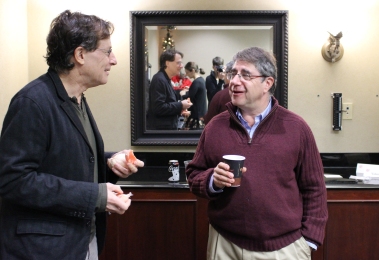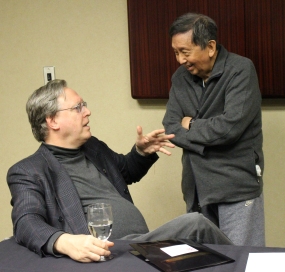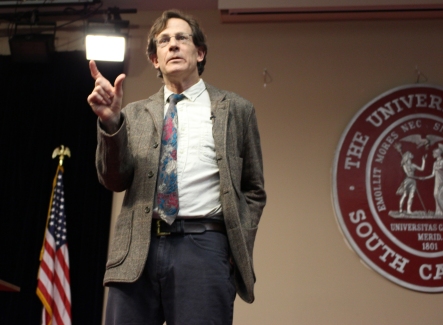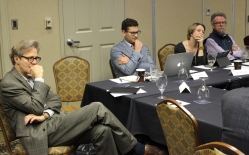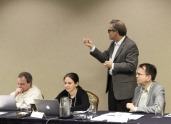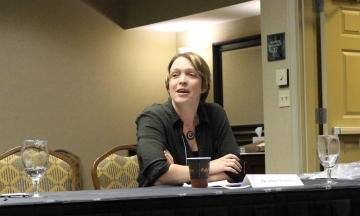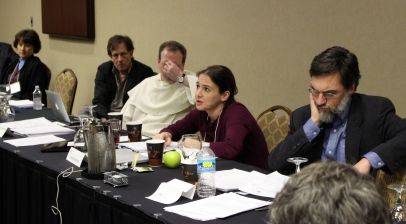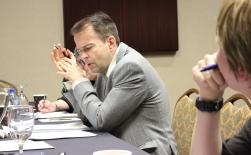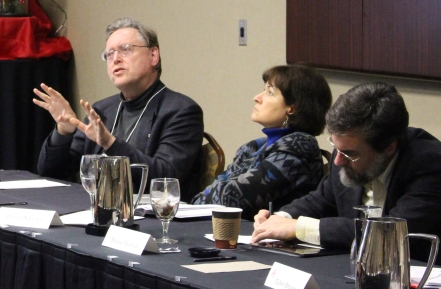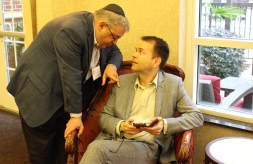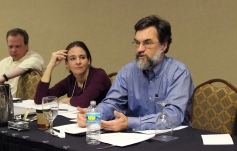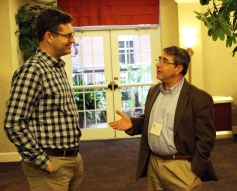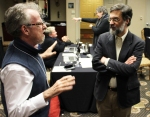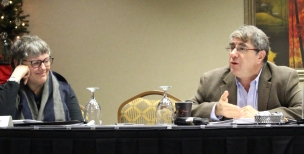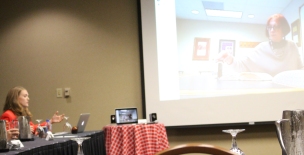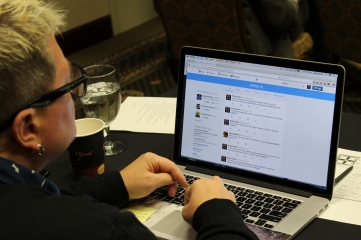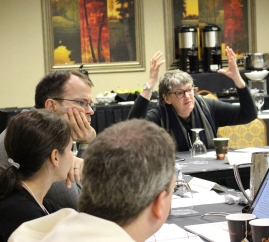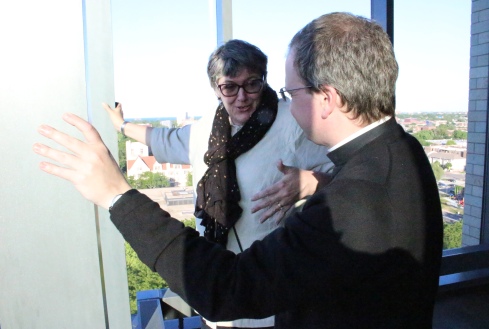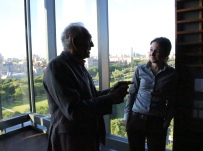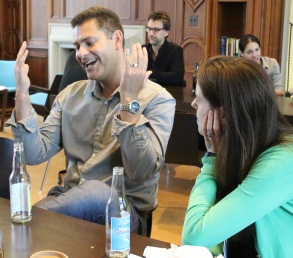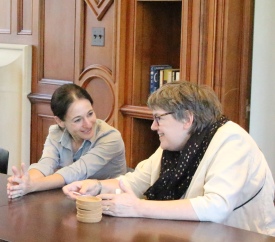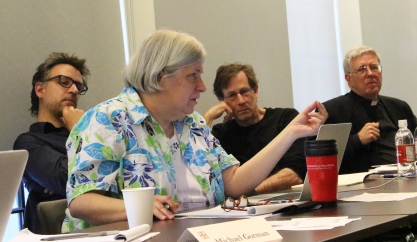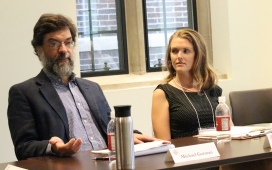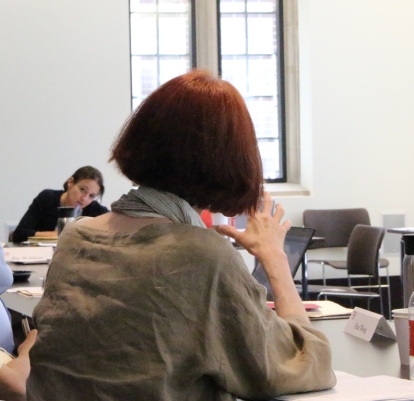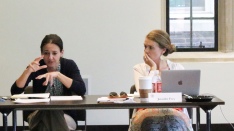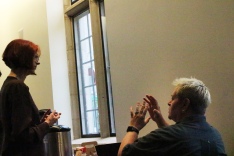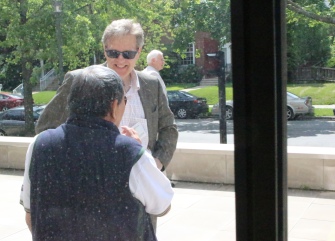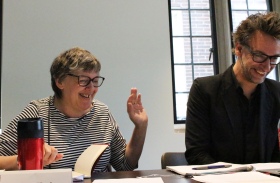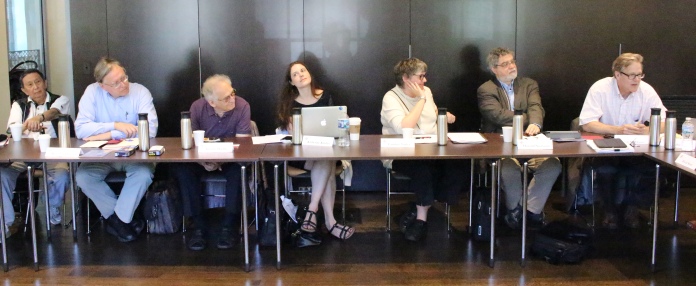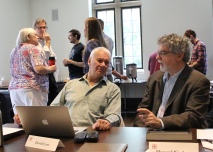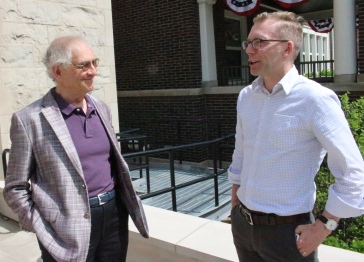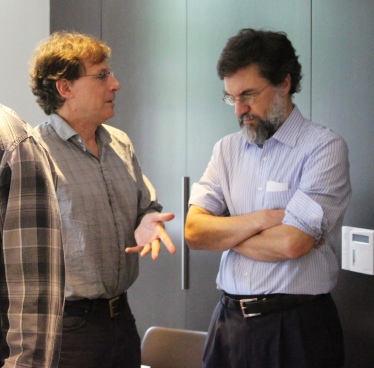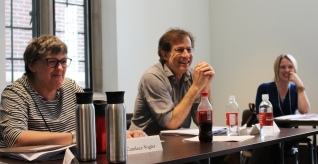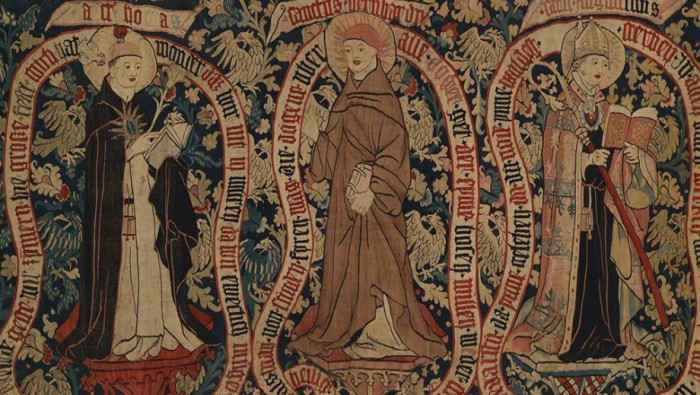
This article originally appeared in Tableau, the Division of the Humanities at the University of Chicago’s quarterly publication, as Scholarship of Self-Transcendence: Candace Vogler leads a search for the meaning of life by Courtney C. W. Guerra.
Candace Vogler, the David B. and Clara E. Stern Professor in Philosophy, is invested in her fellow human beings, and she’s determined to help them—us—find fulfillment. To tackle such a complex issue, she proposed the collaborative research project Virtue, Happiness, and the Meaning of Life, the aims of which are every bit as ambitious as its name implies. With major support from the John Templeton Foundation, this multiyear initiative—jointly led by Jennifer A. Frey, a philosopher at the University of South Carolina—explores self-transcendence: a feeling of connection to something beyond the individual self.
Of course, there’s no single way for human beings to attain self-transcendence: it can happen through spiritual practice, professional drive, familial bonds, or any number of commitments to a higher cause. Vogler’s group includes psychologists, philosophers, and religious thinkers from a variety of traditions. Many are UChicago colleagues: assistant professor Marc G. Berman and professor Howard C. Nusbaum in Psychology, associate professor Tahera Qutbuddin in Near Eastern Languages and Civilizations, and, in Philosophy, assistant professor Matthias Haase and Josef Stern, the William H. Colvin Professor Emeritus. The 30-scholar cohort represents institutions throughout the United States, Middle East, and Europe; they have been meeting and teaching since October 2015.
When she devised the project, Vogler says, “The ambition was to get a kind of deep integration between people working in very different disciplines” without relegating their work to the margins of less widely read, explicitly interdisciplinary publications. And it worked: the participants are “doing disciplinary work, they’re publishing in the disciplinary journals, and the inspiration for it is coming out of the frame of the project.”
These discussions have informed 10 published or forthcoming articles—a figure that “pretty dramatically exceeded” her initial expectations—with many more on the way. One essay that encapsulates the spirit of the project is being developed by Notre Dame theologian Jean Porter, about studies by Cornell University psychologist Katherine Kinzler on early childhood food preferences. Porter finds parallels between contemporary psychology and the views of Catholic philosopher Thomas Aquinas on the influence of group identity on what children choose to eat. (A draft is available on the Virtue Blog, along with other writings and filmed lectures.) This video helps to introduce and contextualize the group’s scholarship.
Like Porter’s essay, much of the project is “built on things that ought to be super interesting to people who are not academics,” says Vogler. She hopes a broad audience will attend the culminating conference at UChicago over the weekend of October 14–15. From there, Vogler plans to share her team’s findings with educators—from early childhood through MBA programs and beyond—to help promote self-transcendence at every stage of development. “There’s a big difference,” she points out, “between leading a life that’s super busy and leading a life that’s full.” Her hope is that the group’s work, as it reverberates out into the broader world, will help people achieve the latter.








